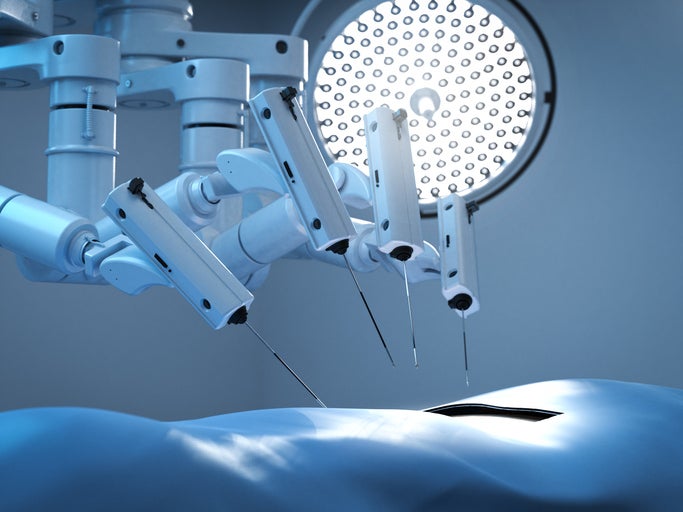
Royal Papworth Hospital, in Cambridge, announced on the 22nd March, 2023, that it will introduce the UK’s first state-of-the-art surgical robot into its operating theatres.
Royal Papworth Hospital is a specialist heart and lung hospital, located on the Cambridge Biomedical Campus in Cambridgeshire, England.

Access deeper industry intelligence
Experience unmatched clarity with a single platform that combines unique data, AI, and human expertise.
The Versius robot technology will mimic the human arm, but has four times more rotation than the human wrist.
This will allow the surgical team to perform minimal invasive surgeries, allowing for faster recovery time and reduced hospital stays.
“Our vision is to provide tomorrow’s treatment to today’s patients, and purchasing this Versius robot does just that, representing a significant investment in patient care,” said Tim Glenn, chief finance officer and deputy chief executive at Royal Papworth Hospital.
This robotic technology has a portable design for easier movement around theatres and may be used for other specialties, such as transplants.

US Tariffs are shifting - will you react or anticipate?
Don’t let policy changes catch you off guard. Stay proactive with real-time data and expert analysis.
By GlobalDataThe Royal Papworth surgeons and the rest of the surgical team will have to undergo comprehensive training on the system – including in-person training, remote mentoring and using virtual reality technology.
Royal Papworth hospital consultant thoracic surgeon and clinical lead for thoracic surgery, Adam Peryt added: “Our patients from across the East of England and beyond who need lung surgery in the future will benefit from this collaboration.
It also benefits our operating theatre staff, who will be trained on cutting-edge technology to drive forward outcomes and recovery times for our patients.”
This use of medtech in the public sector will hopefully minimise scepticism from the public and show what automation can mean for people and the roles they do.
“Using NHS use cases to highlight what is possible is something we lean on heavily – referrals and lessons learnt are valuable to share experiences.
The beauty of many automation projects is that parts are reusable, so not all new projects need to start from zero,” states Holly Hall Hare-Scott, senior partner for health and central government at IT development company, TPXimpact.
This increased public awareness and adoption will also minimise technology access disparity and encourage investment.
“By driving investment across the entirety of the country, we will be able to unlock the full transformative power of healthcare technologies,” Hall Hare-Scott tells Verdict.
“This will require the NHS to get better at knowledge-sharing and scaling successful technological applications or projects to benefit all regions of the UK.”







